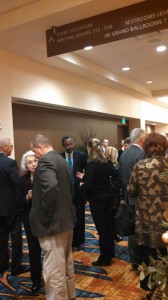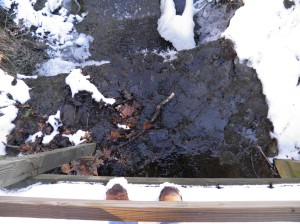 The 1st Amendment to our Constitution has been on my mind the last few days. So much controversy has stirred people’s emotions regarding RFRA, the Religious Freedom Restoration Act. I’m not sure why the US Congress in the 90’s and now the Indiana Legislature felt it necessary to add this law to the books. It really is a restatement of part of the 1st Amendment. It allows for the free exercise of religion. But the 1st Amendment is this and so much more. It speaks not just of freedom of religion, but freedom of speech, the press, assembly and the ability to file grievances if those freedoms are infringed upon. It also states that the government should not establish a religion as had been done in Europe at the time of its writing.
The 1st Amendment to our Constitution has been on my mind the last few days. So much controversy has stirred people’s emotions regarding RFRA, the Religious Freedom Restoration Act. I’m not sure why the US Congress in the 90’s and now the Indiana Legislature felt it necessary to add this law to the books. It really is a restatement of part of the 1st Amendment. It allows for the free exercise of religion. But the 1st Amendment is this and so much more. It speaks not just of freedom of religion, but freedom of speech, the press, assembly and the ability to file grievances if those freedoms are infringed upon. It also states that the government should not establish a religion as had been done in Europe at the time of its writing.
The 1st Amendment and RFRA are very broad and not specific as to their meaning. The interpretation of the law is in the hands of the judicial branch of our government. The 1st Amendment has been scrutinized over the years and used as a measuring stick in many cases. There is no limit placed on the freedoms mentioned in the language of this amendment. Our justices decide the limit of its use. By limit, I mean, how far does one freedom extend until it infringes on another person’s freedom? Does it allow one person in their exercise of freedom to discriminate against another person? It has unfortunately allowed this in the past in regard to the abuse of minority races and cultures. Only when other laws were enacted like the Civil Rights Act in the 1960’s to protect these groups, was the 1st Amendment “reined in” so to speak.
The freedoms we enjoy in our constitution are a double-edged sword. We are free to express ourselves like no other nation. I, for one, am thankful to be born in America. I feel sure that I would not be allowed to pursue the education and career that I have in a great number of nations due to suppression of women there. The very pages of this blog would be censored in a large part of our world. We are blessed by this freedom.
However, this very freedom also allows for people to express themselves in vile and hateful ways. The Internet, as wonderful a tool that it is, can be a forum for this kind of speech. I am appalled at times by the language that is used by people on both sides of an issue. People will say things on social media that I don’t believe they would ever say face to face. The Internet also allows for the promotion of child pornography and human trafficing. My trust in humanity was totally destroyed when I became aware of websites that offer children for sex during sporting events such as the Super Bowl. This happens every year no matter where these events are held.
So my point in all this is that our 1st Amendment is precious and we don’t want to ever lose it but it comes with a price. The price of freedom is the chance for the abuse of it. How do we combat this? We rein it in with other laws that protect minorities and children, laws that don’t allow for discrimination disguised as freedom. We must be very careful not to criticize the 1st Amendment and its counterpart, RFRA, too much or we may lose the freedoms they allow. However, we must be proactive in legislation to protect those who demand and need protection from the abuse of that very freedom.



